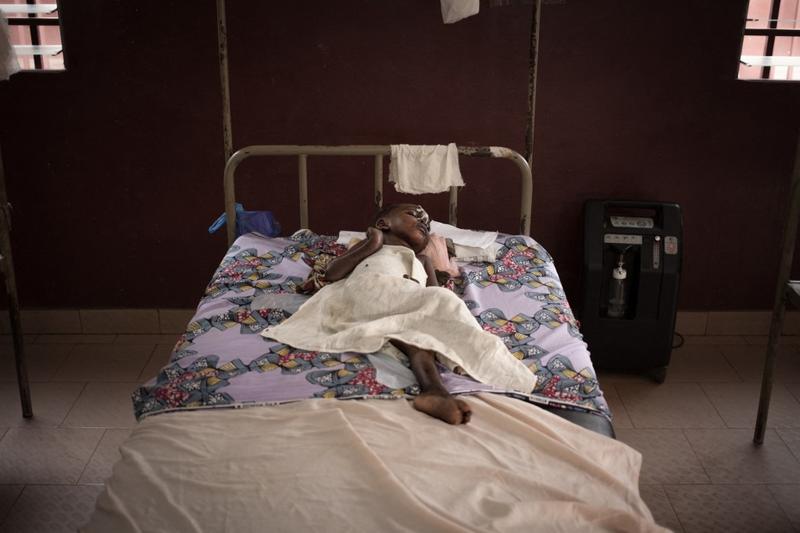 An HIV-positive child is being observed in the intensive care unit of the Bangui pediatric complex on Dec 4, 2018. (FLORENT VERGNES / AFP)
An HIV-positive child is being observed in the intensive care unit of the Bangui pediatric complex on Dec 4, 2018. (FLORENT VERGNES / AFP)
UNITED NATIONS - UN Secretary-General Antonio Guterres has called for efforts to address inequalities in order to bring the world back on track to end AIDS by 2030.
There has been intensive action and progress against HIV in some places and population groups, while inaction in other places has allowed HIV epidemics to expand and deaths to mount, said Guterres in a report released on Friday.
The stark contrast of successes in some areas and failures in others confirms that HIV remains a pandemic of inequalities
Antonio Guterres, UN secretary-general
Six years after the UN General Assembly set an ambitious global goal to end AIDS by 2030, momentum is being lost. The global targets for 2020, which was agreed to in 2016, were missed, he noted.
According to the report, the 1.7 million new HIV infections that occurred in 2019 are more than three times higher than the 2020 target of less than 500,000 new infections. In addition, the 690,000 AIDS-related deaths in 2019 far exceed the 2020 target of reducing deaths to fewer than 500,000 a year.
READ MORE: UNAIDS head to quit post early following scathing report
"The stark contrast of successes in some areas and failures in others confirms that HIV remains a pandemic of inequalities. Getting back on track will require urgent, transformative action to reduce and end inequalities, as well as increased domestic and international investment in HIV, health, social protection, humanitarian responses and pandemic preparedness and control systems," said Guterres in the report.
ALSO READ: Communities help ease HIV/AIDS burden in Vietnam's Thai Nguyen
The secretary-general made 10 recommendations, including: reduce and end inequalities that are obstructing progress to end AIDS; prioritize HIV prevention and ensure that 95 percent of people at risk of HIV infection have access to and use effective combination prevention options by 2025; close gaps in HIV testing, treatment and viral suppression; eliminate vertical HIV transmission and end pediatric AIDS; put gender equality and the human rights of women and girls at the forefront of efforts to mitigate the risk and impact of HIV; close the HIV response resource gap and increase annual HIV investments in low- and middle-income countries to US$29 billion by 2025.
COVID-19 has caused additional setbacks. Yet the pandemic is not an excuse for missing AIDS targets, but rather a stark warning to the countries that they can no longer afford to underinvest in pandemic preparedness and responses, said Guterres.


